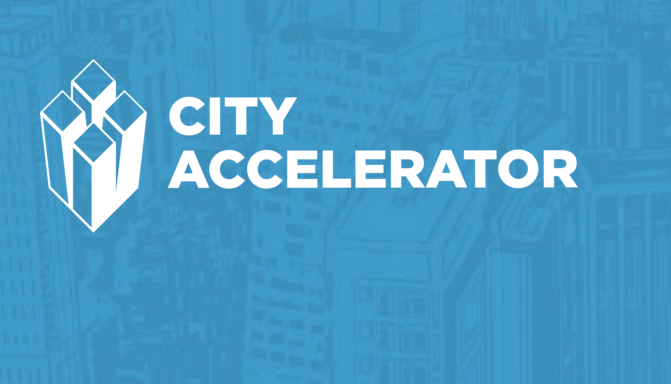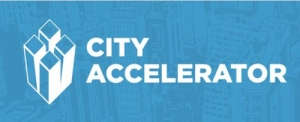
City Accelerator program competition acts as incubator for innovative municipal programs
The tragic water contamination dilemma in Flint, Mich., is but one indicator of the infrastructure needs that plague many cities. Not every city has lead in its drinking water, but almost every city has some type of critical infrastructure issue.
 A recent survey revealed that about half of the nation’s mayors selected infrastructure as the one issue that poses the greatest challenge to their cities. When asked, almost all said that a lack of funding keeps them from addressing infrastructure issues.
A recent survey revealed that about half of the nation’s mayors selected infrastructure as the one issue that poses the greatest challenge to their cities. When asked, almost all said that a lack of funding keeps them from addressing infrastructure issues.
Nationally, the growing demand for infrastructure improvement is estimated to be more than $60 trillion. It might be easy to disregard these needs because of the cost, but that is no longer possible. Infrastructure needs affect citizens in ways that impact quality of life and overall safety.
One emerging program that attempts to address infrastructure problems is worthy of scrutiny. The City Accelerator program was launched by Living Cities and the Citi Foundation. The program was designed to test and implement new ways of addressing infrastructure problems in the U.S.
A selection process is underway and cities are being chosen to test new ways of planning and budgeting for infrastructure projects. When there is success, the strategies will be replicated in other cities.
One finalist is the city of Pittsburgh, a city that has some unique problems. Numerous neighborhoods in Pittsburgh were built directly into the sides of hills. Its 739 sets of public stairways connect communities and provide access to transit and other amenities.
The city can only afford to repair or replace a few sets of steps each year. That’s not enough to preserve the aging walkway. After decades of disinvestment because of budget restraints, the city must now do something. Participation in the City Accelerator would allow officials to take a comprehensive approach to infrastructure problems such as this.
The City of Providence, R.I., is also a finalist in the City Accelerator program. Home to some of the nation’s first hydro-powered factories, Providence grew expeditiously due to the economic boom provided by its waterways. But, over time, the waterways became dumping grounds for unwanted materials, including raw sewage, heavy metals and hazardous chemicals.
Now, the city’s stormwater infrastructure is strained to the limit and the harmful effects of climate change – rising sea levels, inland flooding and heavy rains – have created a critical need. City officials want the City Accelerator to help develop strategies to structure debt, launch public-private partnerships and use federal funding to address the problem.
The city of San Francisco also has reached out for assistance with a long-term financing plan for coastal sea wall protection in its downtown core. The activity on the waterfront is an essential part of San Francisco’s economy and the sea wall must be maintained.
Earthquakes are hard on sea walls and the U.S. Geological Survey predicts a 72 percent chance of one or more major earthquakes within the next decade or two. San Francisco’s location between two major faults, San Andreas and Hayward, make its sea wall particularly vulnerable.
Preliminary analysis estimates come in at about $500 million for immediate needs and $5 billion over the next decade. The city must find a budgeting option that can be sustained for years to come.
The problems facing city officials are diverse and critical. Creativity, collaboration and innovative funding options are needed. Perhaps the City Accelerator program can help.
